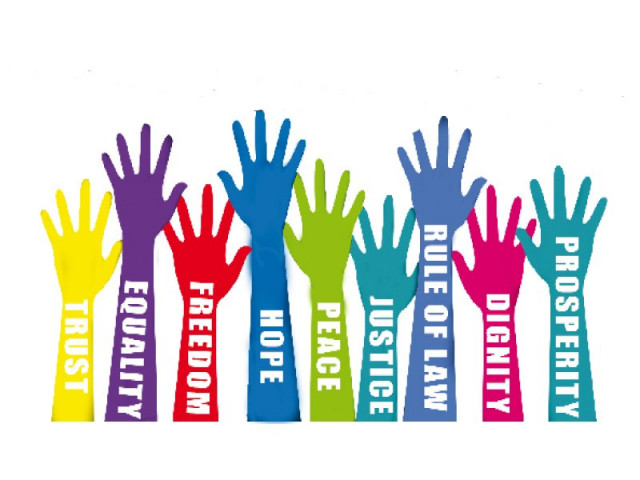Civil, political rights: A land where rights remain a dream
UN convention requires signatory states to take necessary steps for protection of rights.

UN convention requires signatory states to take necessary steps for protection of rights. PHOTO: FILE
Despite recent international commitments, the Pakistani government has failed to take any legislative steps that might help improve the dismal state of human rights in the country and provide much-needed protection for Pakistan’s religious minorities.
Representatives of the South Asia Partnership-Pakistan (SAP-PK), a national NGO, demanded the government to deliver on the promise it made when it signed the United Nations (UN) International Convention on Civil and Political Rights (ICCPR) in 2010.
The convention requires signatory states to take necessary steps for the protection of rights such as the right to expression, association, assembly and thought.
But Pakistan even failed to submit its initial report for the ICCPR in 2011 to the UN Human Rights Committee, said Hameed Gondal, the national project coordinator at SAP-PK. Gondal was addressing a press conference organised on the issue of minority rights and religious freedom by SAP-PK at a local hotel on Saturday.
“When states ratify an international convention, it legally binds them to introduce domestic laws in accordance with the convention,” Gondal said. “Not only has Pakistan not made any laws related to the ICCPR, it has also failed to submit an initial report, even after two years have passed.”
It is not that the government’s inaction is because the fundamental rights of citizens are being ensured.
During the past three years, Pakistani society has been rocked by numerous senseless acts of violence and oppression that have exposed the state’s inability to deliver human rights. Church bombings, sectarian killings, enforced disappearances, militant attacks, false blasphemy cases and forced conversions have all undermined rights of citizens, especially religious minorities.
Gondal said without the ICCPR country report, the Pakistani civil society is also prevented from presenting a shadow report to the UN committee about the state of human rights and religious minorities.
“Countries have an option to accept or reject the UPR recommendations,” Gondal said. “But if they accept, they are required to provide a mid-term review report on the way they followed the recommendations.”
Pakistan had accepted most of its 164 recommendations, out of which at least 30 directly deal with the rights of religious minorities, he said. But since 2012, two successive governments neither disseminated the recommendations publicly as they should have nor took significant steps on the international suggestions.
SAP-PK called on the government to deliver on its international commitments. It also demanded the government to establish a commission on minority rights at national and provincial levels with financial and administrative powers.
Published in The Express Tribune, February 16th, 2014.



















COMMENTS
Comments are moderated and generally will be posted if they are on-topic and not abusive.
For more information, please see our Comments FAQ